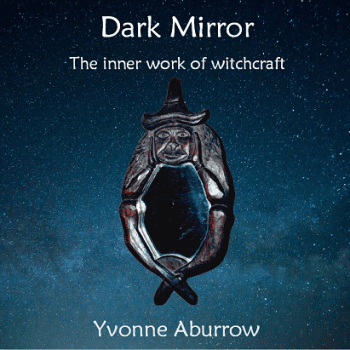Previously on Outside the Charmed Circle, I said a few things about consent, power, ethics, and civilization. (No, seriously. I’d had a lot of coffee that day.) Today, I want to tug on those threads a bit harder, and see what they’re connected to. Specifically, I want to look at the p-word community’s ambivalent relationship with consent and power, and how we might improve that relationship.
First, though, we should recap and develop our definition of consent. The quick-and-dirty definition I’m using here is “freely-given assent or approval related to a specific action or course of action.” Thus, I can give (or withhold) my consent for medical treatment, having my hair cut, or having sex with someone. Similarly, a medical professional, a hairstylist, and a potential sexual partner can all consent (or decline to consent) to interact with me in the aforementioned ways.
Consent doesn’t pertain to situations which don’t involve action, nor to actions which don’t involve my person in some way. I cannot give or withhold consent to how people think of me, for instance, nor to how they speak of me to other people. I cannot “consent” to being white, having freckles, or having been born in the United States; those aren’t things I “do,” and they don’t involve action between myself and another person.
Consent can only exist between two or more parties1 within an interpersonal interaction, all of whom possess moral agency. This is a key concept, one which some folks might not know by name, so it’s worthwhile to take a quick sidebar here. Let’s start with “agency” itself, which simply means “the ability to act.” This isn’t unique to humans, nor even to living creatures; machines act, as do corporations, weather systems, and other noncorporeal agents. In philosophy, this expands into the concept of moral agency, the ability to choose to act or not act based on moral values of “right” and “wrong,” which also incorporates notions of responsibility and accountability. So, consent exists only as a negotiation between parties which have the ability to make choices and take actions. (Agency is a huge field of study and theory, and interested parties can find more information here.)
The “freely-given” part in that definition of consent is important, and shouldn’t be glossed over. Consent is agreement, but not all agreements involve consent. Some, in fact, involve coercion, which is just about as far as you can get from consent without crossing into overt physical force. For those who are unfamiliar with the concept (a vanishingly small number, I hope), coercion means forcing someone, overtly or implicitly. to do what you want them to do by threatening them with some unpleasant outcome if they refuse. The nature of the threat can vary widely, from social stigma to actual violence, depending on the context of the coercion. (As I am foursquare in favor of consent in all things, I hope it goes without saying that I find coercion anathematic.)
Venues of Interaction and Consent in Praxis
Unless one is a hermit, most of human existence involves interactions between two or more parties possessed of moral agency. Within the context of magical and polytheist practice, though, there are a number of scenarios particular to our context which merit some consideration, especially in relation to consent. Below are a few of them, along with some relevant questions we can, and should, ask ourselves.
Between working partners.
These are the people with whom one shares ritual work: one’s covenmates, circling partners, fellow lodge members, and so on. Is everyone in the ritual space on the same page—figuratively or literally—about what we’re doing in the ritual? Does everyone have buy-in to both the outcome and the methods? If there are roles assigned to specific people, are they aware of what’s expected of them in that role, and freely willing to perform those duties?
Between lay participants.
Here, I mean the people with whom one shares ritual space, perhaps in a public ritual setting, without being celebrants or operators in the ritual. This tends to be a pretty flat, even power dynamic, but there are still issues of consent to consider. Are my actions impinging on other people’s ability to have their own ritual experience? Am I attempting to make someone else part of my experience without their consent?
Between caster and receiver.
I’m referring here to the person performing a spell, prayer, or work of some kind, and the one who receives it2. Is the receiver aware that the caster is working on them? Are they a willing recipient of the caster’s magicospiritual intent? In cases where the recipient is unaware and unable to respond, is the caster assuming implied consent? (For a beginning primer on implied consent, see this Wikipedia article.)
Between initiator and candidate.
There are all kinds of power dynamics at work between someone who holds the power to bring another person into a set of mysteries and the person being brought in, complicated by the secretive nature of many initiatory traditions. Is the candidate aware enough of what may be asked of them, and of any potential risks, that they can give informed consent? (Again, for more on informed consent, here’s the Wikipedia article.) Is there an element of coercion in the ritual drama of the initiatory ceremony? If so, is it necessary, and why?
Between summoner and spirit.
I’m using the most generic terms I can to refer to “the person who is requesting the attention and effort of a being of some sort” and “the being they’re calling.” For the former, we could substitute a number of terms: invoker, evoker, priest, magician, witch, spirit-worker, and so on. Similarly, we could identify the latter as spirits, demons, angels, ghosts, elementals, guardians, and others. In any case, what is the relationship we’re assuming between ourselves and the beings we summon, stir, and call up? Are we superior beings binding them to our will, possibly with threats of immolation or torture? Are we inferior beings supplicating ourselves and submitting our own wills and power to beings we hope will be nice to us? Are we assuming that the beings we summon are willing to be summoned, and to do what we want?
Between gods and devotees.
It’s not unfair to suggest that most forms of Pagan, polytheist, and magical practice interact in some way with gods. This raises the seemingly obvious question of what exactly these gods are. Are they externalized, anthropomorphic aspects of our own psyche? Are they archetypal figures? Are they cultural artifacts rooted in a specific time, place, and group of people? Are they individual intelligent beings with their own autonomy and moral agency? Or are they something else besides? How we answer that question, consciously or not, shapes the ways we interact with our gods and the issues of consent involved… and if these are beings with their own agency and agenda—in other words, if they’re people, for a given value of “person”—we also have to consider the issue of our own consent to the requests, or demands, that our gods make of us.
It gets complicated quickly, this business of consent, doesn’t it? Fortunately, there are ways to work through that complexity.
To What End, At What Cost?
Depending on what you think gods and spirits are, those last two can overlap quite a bit, and raise some of the same questions around consent. For instance, there’s a tendency within some parts of our intertwined communities of practice to simply assume consent from the gods and spirits with whom we work. I would suggest this derives, at least in part, from the previously-discussed belief that we’re entitled to whatever thing we happen to want at a given moment, merely because we want it. This “wishing makes it so” assumption drives a behavior common within the p-word community in which gods and spirits are treated rather like servants in an episode of Downton Abbey: come here, do this, take care of that, thank you, that will be all, now be off with you.
I don’t much relish being treated like Mrs. Hughes or Carson the butler, especially if I’m not being paid for my services, and I don’t imagine any of the gods and spirits with whom I’m privileged to work care for it, either.
It may be useful when entering into an interaction—whether with gods, spirits, or our fellow human practitioners—to ask ourselves what we’re looking to get out of it, and what we’re willing to put into it. My shorthand for these questions is “to what end?” and “at what cost?” This may seem overly transactional, even mercenary, but I find it tends to elicit a much greater degree of honesty in my interactions. That may not be exactly comfortable at times, but if we want to see things as they truly are, we have to be honest about who we truly are, to ourselves at the very least. Similarly, if we want to manifest our will, we have to know what we actually want, and what we’re willing to do to achieve that. Answering “to what end” and “at what cost” shifts us away from treating our interactions as avenues of conflict and dominance, and instead approaches each interaction as a negotiation, in which all parties have agency, autonomy, and an opportunity to become invested in the outcome.
And that, fundamentally, is what consent is about. If we want to get to “yes,” we have to be willing to accept “no.” In fact, the ability to say “no” is what makes saying “yes” so meaningful, and so powerful.

- I suppose one could construct a situation in which one negotiates consent with oneself, but that’s a bit beyond the scope of this piece.
- I was looking for a better term than “receiver” for the recipient of a magical working, but failed to come up with one. Feel free to suggest something in comments!
















